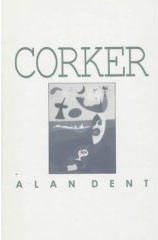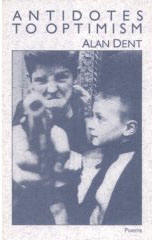|
Interview
(Tuesday 03 July 2007-
Morning Star)

ALAN DENT tells ANDY
CROFT
In May 1968, one of the
demands of the striking French students was that the Paris Metro
should be free. "Be realistic," ran another slogan, "demand the
impossible."
If such utopianism sounds
touchingly innocent today, it is a measure of how far the
imagination has surrendered to the impossible conditions of "the
real."
When the Metro is Free is a
new anthology of counter-cultural poetry from contemporary
France. It is a great introduction to modern, radical French
poetry. People who want some relief from the inwardness of
British writing should enjoy it.
These are sketches from the
Left Bank of the contemporary imagination, postcards from
France's literary counter-culture, poems snatched from the
maelstrom of the contemporary. They are urban, urgent and vital,
engaging with daily life and with the struggle to humanise it,
representing the work of a group of poets gathered around the
radical poetry publisher Le Temps des Cerises.
Edited by the British poet
Alan Dent, it includes work by Francis Combes, Francoise Coulmin,
Jacques Gaucheron, Gerard Noiret, David Dumortier, Veronique
Vassiliou and Laure Limongi.
For Dent, these poets are
the descendants of Apollinaire and Prevert, inheritors of the
bohemian tradition of questioning everything, bearers of Marx's
idea that nothing human can be alien to us.
"Mainstream French poetry
is safe and polite, like in Britain. The publishing industry
wants to make money and isn't much interested in work which puts
that in question.
"But France also has the
bohemian tradition which is fairly alien to British writing,
just as it has the anarcho-syndicalist political tradition which
so bemuses the British, especially the English.
"While British poetry was
wondering if there was still honey for tea, Apollinaire was
pulling the rug from under European poetry by writing ZONE. I
wanted to bring some of that lovely, daring, subversive
sensibility of French poetry to British readers," says Dent.
Dent is the editor of
Penniless Press, a twice-yearly samizdat selection of poetry,
fiction and criticism with which he conducts a one-man guerilla
campaign against the British literary mainstream.
A French teacher in a
comprehensive school in his native Preston, he despairs of the
insularity of British society and of British poetry.
"We suffer from thickened
Larkinism according to which everything foreign is suspect. The
influences on my own thought and writing are mainly foreign and
mostly European - especially Flaubert, Cervantes and Tolstoy -
so I was eager to bring to British readers a taste of what's
going on in French poetry, but not the poetry that Dominique de
Villepin reads."
Le Temps des Cerises
founder Francis Combes draws on History to demystify the
absolutes of contemporary ideology. Francoise Coulmin explores
the female narratives of history. Veteran Jacques Gaucheron
recalls past conflicts and old comradeships.
Gerard Noiret fuses the
banal and the extraordinary. David Dumortier takes us on a
sharp-witted, amusing trip through the underworld of the Metro.
Although their approaches
are radically different, they share the same existential charge,
wrestling with the essential problem of modern life - the
relationship of the individual to society.
"The book's unifying thread
is enlightened materialism - freedom is the recognition of
necessity. All the poets are disturbed by inequality, brutality,
injustice and boredom. The idea of the Metro being free is
joyous.
"Let's all work and enjoy
our work. Let's work together in a spirit of generosity and
share what we produce for the good of all. It's an antidote to
the petty, mean-spiritedness of a society where everyone is
counting their money and looking over their shoulder.
"The poets here know that
sensibility is a product of circumstances and those of the
contemporary world, of what Guy Debord called The Spectacle,
make us suspicious, greedy, self-seeking, money-obsessed and
unhappy.
"The book says that we must
reject hubris and live modestly in the world, respecting nature,
ourselves and one another. It is a book full of hope. One day,
we will all ride on a metro that's free."
When the Metro is
Free is available from Smokestack Books, PO Box 408,
Middlesbrough TS5 6WA, priced £7.95 plus 50p postage.
 |



